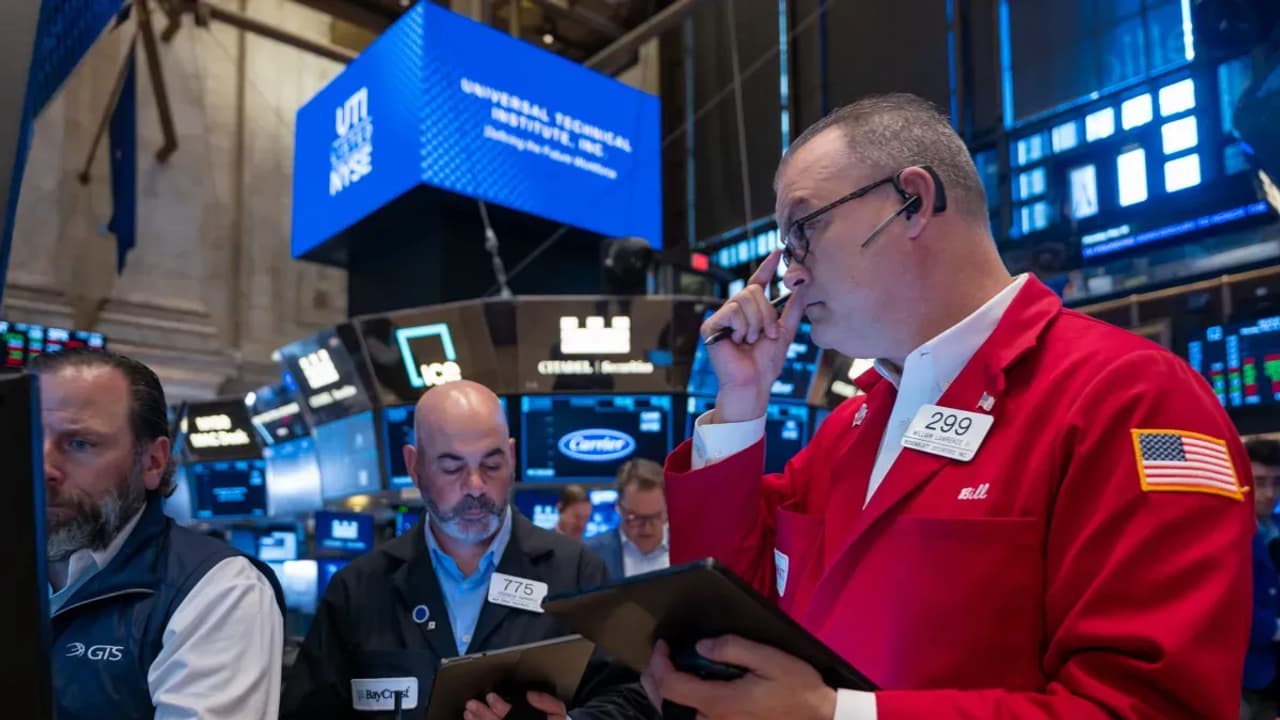The week’s economic event is headlined by the Federal Open Market Committee rate decision, due Wednesday after the conclusion of a two-day meeting.
U.S. stock futures are pointing to a higher open on Monday despite the raging Middle East tensions, as traders look ahead to some key Main Street catalysts.

The week has started with more negative tidings on the Israeli-Iran conflict, with both sides launching fresh strikes on each other. Also on tap is the Federal Reserve’s next rate-setting meeting, even as the economic outlook remains hazy amid policy uncertainties and geopolitical tensions.
As of 11:50 p.m. ET, the Nasdaq 100 futures rose about 0.19% and the S&P 500 futures added 0.11%. The Dow futures gained 0.06%, while the Russell 2000 futures moved up about 0.32%.
Oil is on the boil amid Middle East tensions. An ounce of West Texas Intermediate-grade crude oil traded above $72 a barrel in the early Asian session, although it was off the high of $74 it touched earlier.
Gold futures edged up to around $3,457 an ounce, and the dollar is firmer against its major currency counterparts.
The 10-year U.S. Treasury note yield remained nearly unchanged after rising 1.54% to $4.4240 on Friday.
The week’s economic event is headlined by the Federal Open Market Committee (FOMC) rate decision, due Wednesday after the conclusion of a two-day meeting. Retail sales data for May, weekly initial jobless claims data, the Fed’s May industrial production report, a couple of housing market data, and the import price index for May are among the other data that will likely be on traders’ radar.
The New York Federal Reserve is scheduled to release the results of its Empire State manufacturing survey on Monday at 8:30 a.m. ET. The business conditions index is expected to remain depressed. However, it is expected to show a less negative reading of -6 for June versus -9.2 in May.
Homebuilder Lennar Corp. (LEN) is due to report its quarterly results after the market closes.
JPMorgan Chief Global Strategist David Kelly said, despite the economic conditions not altering much, stock prices have rallied.
The strategist said, “Consequently, caution is in order,” as he recommended that investors monitor the spreading sogginess in the U.S. economy.
“If the recent rally has increased the concentration and riskiness in their portfolios, this is still a time to diversify, in a tax-efficient manner, away from the most expensive sectors in markets and towards value stocks, international stocks, core fixed income and well-managed alternatives.”
Stocks posted weekly declines for the five sessions ended June 13, as looming uncertainties, particularly around Trump tariffs, and the standoff between the president and Tesla CEO Elon Musk, took some sheen off a pair of tame inflation readings.
For the week, the Invesco QQQ Trust (QQQ) ETF and the SPDR S&P 500 ETF (SPY) fell 0.60% and 0.40%, respectively.
The SPDR Dow Jones Industrial Average ETF Trust (DIA) slipped 1.30%, while the iShares Russell 2000 ETF (IWM) slipped 1.40%.
For updates and corrections, email newsroom[at]stocktwits[dot]com.<
